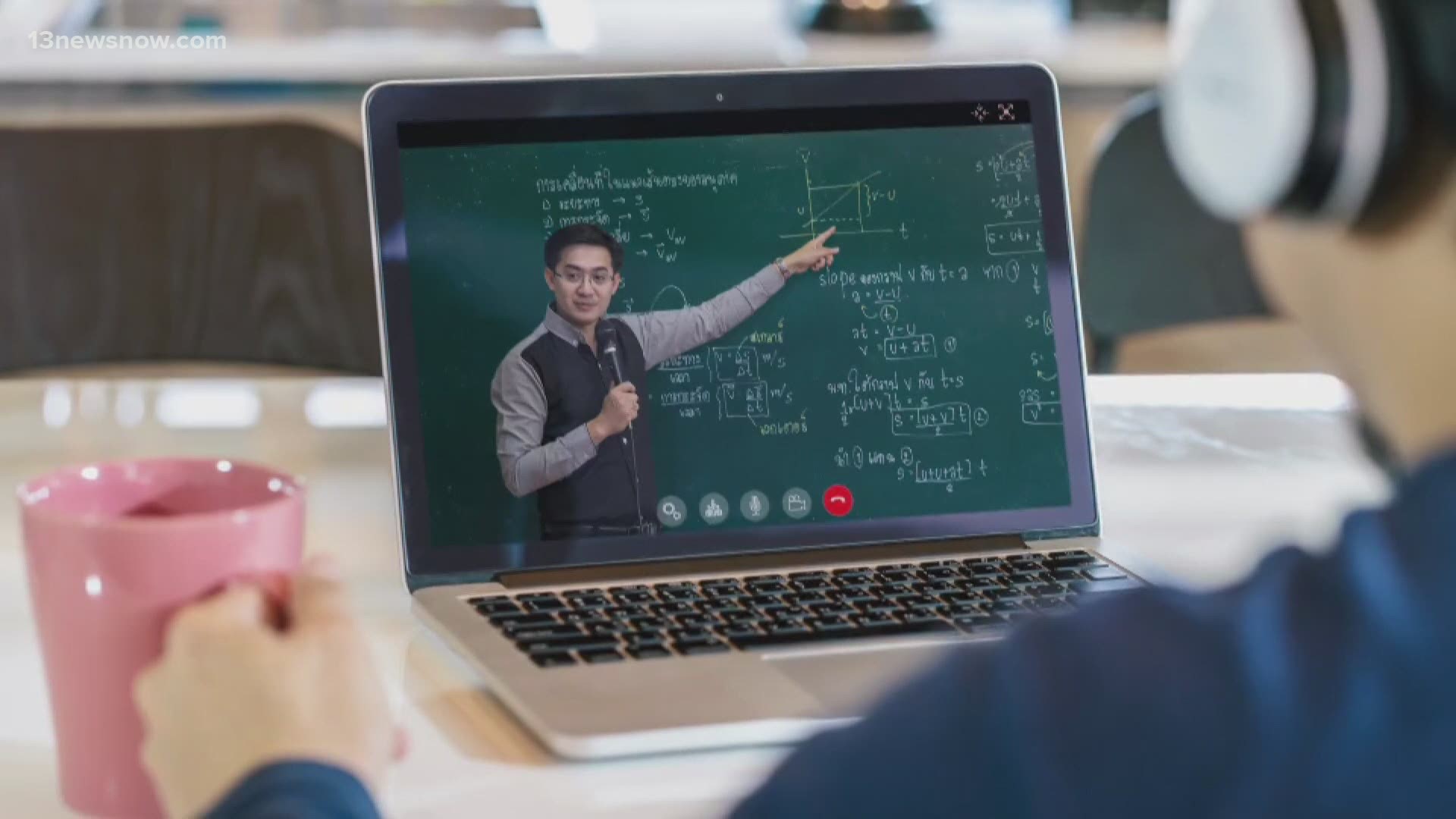CHESAPEAKE, Va. — Just how well are students handling online learning?
A new report from a standardized testing agency NWEA has a first look at test scores from this year, and it turns out, children are performing better than anticipated.
The study stated: "Our findings show that the impacts of COVID-19 disruptions on student achievement were not the blanket declines many expected..."
The non-profit group offers the MAP test which districts like Chesapeake Public Schools administer to students, according to the district's Director of Assessment and Accountability Diane Edwards.
“We really see it as more of a tool than a test. It is a test but we use it as a tool to see what children know, and what they’re ready to learn,” Edwards said. “Going out to schools and talking to teachers, we are seeing some very positive results. That tells us that virtual instruction is going well and students are learning.”
Next door, Virginia Beach City Public Schools offers its own assessment tests. Dr. Sharon Shewbridge, Director of Instructional Technology, said they’re also seeing similar results.
“I am in awe of what our teachers in our school division are doing," she said. "There is no research on best practices, there is no data to say this is how we deliver online instruction.”
But Shewbridge said the district has noticed a difference when students are in the classroom.
“There’s definitely a preference for students to be face-to-face," she said. "And we saw spikes and growth when students were face-to-face. So that opportunity for kids to be back definitely improved some of our results and some of the assessments.”
Some key findings from the MAP test report: Virtual learning hasn’t had much of an impact on student’s reading, but did slightly slow progress in math.
The study compares scores from this year to last year. It found “students scored better than [the agency’s] projections in reading” but “gains in math were lower on average.”
Both Edwards and Shewbridge said teachers are working to help students, who may be struggling with online learning, to catch up.
"Are there some children that are having challenges? Absolutely. But we anticipated that," Edwards said. "Teachers are going the extra mile to work with them individually and do whatever they can.”
Shewbridge said her district tried to anticipate any problems and is diverting the necessary resources to help teachers, help students.
“On that report you shared, there were definitely some gaps in math noted," Shewbridge said. "So we try to anticipate going into this year where there might be holes or gaps... and added pre-assessments for skills that might be needed."
There is an issue with this latest report.
Researchers noted there are some students missing from the data because they didn’t take the MAP test this year, mainly minority students or kids from high-poverty districts.
Both Edwards and Shewbridge said they’re testing all their students.
“We are collecting data from all of our student groups," Shewbridge said. "That’s the only way we’re going to grow and improve what we’re doing."

